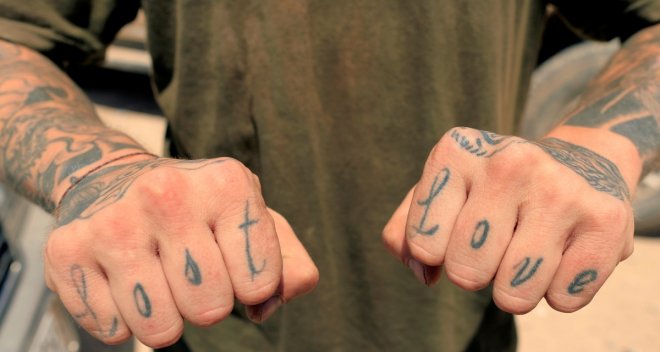
While companies like Apple, Samsung and Xiaomi are aiming to persuade fitness freaks with their advanced wearables, scientists are set to take health monitoring to new levels by developing smart tattoos. The ongoing development is presumed to bring us to the future that goes beyond some initial range of smartwatches and fitness bands.
Researchers at Harvard University and MIT have created a smart tattoo ink that is claimed to be capable of monitoring vital health signs. The ink changes its colour to notify users when they are dehydrated or diabetic. "We were thinking: new technologies, what is the next generation after wearables? And so we came up with the idea that we could incorporate biosensors in the skin," said Ali Yetisen, a Tosteson postdoctoral fellow at Harvard Medical School (HMS) and Massachusetts General Hospital.
The development of smart ink has been conducted by a two-member team of postdoctoral fellows at HMS, including Yetisen and his colleague Nan Jiang, and researchers' group led by Katia Vega at MIT's Media Lab.
It is mainly paired with biosensitive inks which are developed at Harvard with traditional tattoo artistry to surpass the requirement of any external power and wireless connection -- the two major factors that are limiting the wearables available nowadays.
Unlike detecting blood oxygen, the smart tattoo ink leverages changes in interstitial fluid of human body to change its colour. The ink presently changes from green to brown with the increase of glucose concentration. Further, you would have the smart ink on your skin either through long-lasting tattoos or some temporary ones.
Invisible ink also in works
The researchers are also in development to make the ink totally invisible for naked eyes and enable the monitoring only through particular kinds of light that could be generated from a smartphone. A mobile app has already been developed that can analyse a picture of a sensor to provide quantitative diagnostic results.
Starting from patients to astronauts, the newest research has many potential users. But it would ultimately make things tougher for tech companies, including Apple, Fitbit and Xiaomi, who are competing actively to continue their domination in the growing market of wearables.
Wearables market projection of over 240 million shipments
According to a recent IDC report, the wearables market will hit the milestone of over 240 million shipments in 2021, an increased five-year CAGR of 18.2 percent. Vendors, who have so far brought developments such as smartwatches, wristbands, clothing and earwears among others, have shipped a total of 125.5 million wearables in 2017, resulting in a 20.4 increase from the 104.3 million units shipped in 2016.









